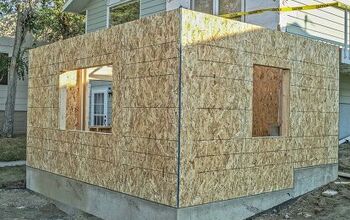How To Get Rid Of Spiders In Your Basement

Spiders can understandably make anyone feel uncomfortable in their house. Not only do they look scary, but some of them, like brown recluses, are quite dangerous. You may struggle with how to get rid of spiders in your basement, but it’s quite easy.
The best way to get rid of spiders in your basement is to clean the area, use glue traps, and spray the space with a repellent. Indoor plants and essential oils like citronella, peppermint, tea tree, and cinnamon can also get rid of spiders. Mix white vinegar with water and spray the perimeter of the walls to get rid of spiders in your basement.
Make sure to spray and attack webs to tear them down to displace the spiders in your basement. Follow along as we explore how to get rid of spiders in your basement.
Why Are So Many Spiders Getting In My Basement?
Spiders get into basements during the fall and winter because they seek warmth and moisture. The basement is often the most humid part of a house, and this is quite attractive to spiders. They even sneak into houses and get into the basement during summer when it’s hot outside and the water sources are limited.
However, the plummeting temperatures in the fall and winter make spiders seek shelter indoors. Basements are typically dark and moist, and that gives spiders the perfect chance to hide and kill their prey. Silverfish, beetles, ants, crickets, and roaches all love basements, and spiders love to eat them.
Spiders also get into your basement if you have poorly sealed basement windows. The presence of spiders doesn’t always mean that you’re in danger, but it can still be quite annoying. While spiders kill annoying pests like roaches, spider bites are painful in many cases, so it’s best to keep them out of your basement.
What’s The Fastest Way To Get Rid Of Spiders?
Clean Your Basement
Spiders are attracted to clutter because messy spaces provide plenty of hiding spots. Clusters of blankets, trash, clothing, and pillows attract spiders to your basement. Not only will they hide there to kill other bugs, but they may also nest in messy spots.
The last thing you want is for spiders to nest and reproduce in your basement, so it’s best to simply clean the space. Avoid leaving clothes or blankets on the floor. Spiders particularly stick to the sides and corners of rooms, so pay attention to those areas when you clean the basement.
Make sure to keep the space beneath chairs, couches, and beds in your basement clear, as spiders are attracted to them.
Set Up Traps
Spider traps are simple and seem too good to be true, but they work quite well. They are primarily made of cardboard and feature glue that spiders get stuck on. The spiders will slowly die once they get stuck in the trap.
Once a few spiders die in your trap, it will become more successful. Spiders seek other spiders, so they will follow the path into the trap, only to become stuck themselves.
Some homeowners mistakenly throw away traps once they see a few spiders in them, but that’s the last thing you want to do. Spider traps will also trap roaches and silver fish, which will attract even more spiders.
Use Indoor Plants
Several plants that repel spiders can quickly grow indoors if you use lights. This includes mint, lavender, and sage, all of which have a smell that spiders hate. These plants will help get rid of spiders in your basement, and they will also give the space a comfortable, attractive flair.
Spray Your Basement
Spray the area with repellent to get rid of spiders in your basement. You can apply repellent spray without professional help, but it’s best to contact an exterminator in most cases. Exterminators do a great job of covering all the problematic areas, and they have access to the best sprays and equipment.
Not only will repellent spray get rid of spiders in your basement, but it will also kill the bugs that attract them. Most repellent sprays are all-purpose, but some are mostly only meant for spiders. However, many repellent sprays don’t affect brown recluses, and that can be a problem if you have them in your basement.
Because of that, it’s important to read the label and ingredients of any repellent spray you come across. For example, cyfluthrin can kill brown recluse spiders, according to Texas A&M researchers. Let the exterminator evaluate which spiders are in your basement, so they can use the best chemicals possible.
Apply White Vinegar
White vinegar is the ultimate household remedy for everything from stains and clogged drains to spider infestations. Spiders hate the smell and taste of white vinegar, especially when you spray it around the border of your basement.
A 50/50 combination of water and white vinegar is enough to get rid of spiders in your basement in many cases.
Simply mix equal parts water and white vinegar in a bottle and spread or spray it throughout your basement.
The water will help reduce the intensity of the smell of vinegar, so you don’t have to worry about the scent. Spray the mixture on any web you find and pay attention to the corners in your basement where spiders typically nest.
Use Essential Oils
Whether it be peppermint, cinnamon, lavender, or citronella, you can get rid of spiders in your basement with many essential oils. Spiders are small, but they are quite sensitive to strong scents. Peppermint and cinnamon can deter spiders even better than glue traps in many cases.
Not only do spiders have a strong sense of smell, but they can also sense smells and tastes through their feet. Spread some lavender, tea tree, cinnamon, or peppermint oil along the perimeter of the walls to get rid of spiders in your basement. Focus on areas where you see the most spiders and webs to keep them away or drive them toward traps.
Take Webs Down
Taking down webs may not kill spiders right away, but it will make their lives much harder. Spiders rely on webs for catching prey and even reproducing in some cases. Many spiders keep egg clusters in webs, but that’s not possible when you destroy the webs.
All you need is a stick, screwdriver, or clothes hanger to take down spider webs. You can get rid of spiders in your basement if you continually remove webs, set up traps, and keep the area clean.
Let Your Cats Kill Them
It’s no secret that cats are fierce predators. Cats spot spiders and other bugs right away, and they typically pounce on them. They are better at killing spiders than most exterminators.
That said, you shouldn’t let your cats get rid of the spiders in your basement if you have dangerous spiders. Brown recluses and black widows can harm cats just as much as they can harm humans. Contact an exterminator if you have dangerous spiders in your basement.
Should You Kill Spiders In Your Basement?
You should kill the spiders in your basement if they make you uncomfortable or are harmful. For example, you must get rid of harmful spiders in your basement like black widows and brown recluses. Both black widows and brown recluses are dangerous, and they both gravitate toward basements.
However, cellar spiders, hobo spiders, and wolf spiders are relatively harmless to humans. Some of these spiders can bite humans, but their bites aren’t dangerous or common. House spiders are helpful in that they kill and eat other pests like moths, roaches, and mosquitoes.
This makes harmless house spiders quite useful in most cases, even if it’s uncomfortable to look at them. That said, you may understandably want to get rid of spiders in your basement because any bug can make a homeowner uncomfortable. Luckily, it’s easy to get rid of spiders in your basement with traps, sprays, and careful planning.
Summing It Up
Clean the area, set up traps, and use indoor plants like lavender and peppermint to get rid of spiders in your basement. You can also spray the basement with repellent or a mixture of white vinegar and water to get rid of spiders. Essential oils that contain tea tree, cinnamon, lavender, peppermint, and citronella can also help get rid of spiders in your basement.
Related Guides

Nick Durante is a professional writer with a primary focus on home improvement. When he is not writing about home improvement or taking on projects around the house, he likes to read and create art. He is always looking towards the newest trends in home improvement.
More by Nick Durante










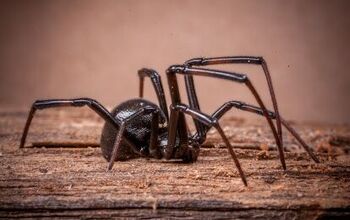
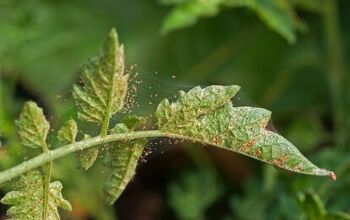

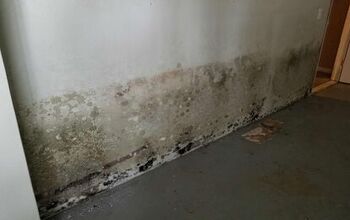
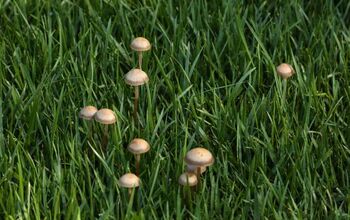





![12 Washing Machine Brands to Avoid [with Recall Data]](https://cdn-fastly.upgradedhome.com/media/2023/07/31/9075781/12-washing-machine-brands-to-avoid-with-recall-data.jpg?size=350x220)




